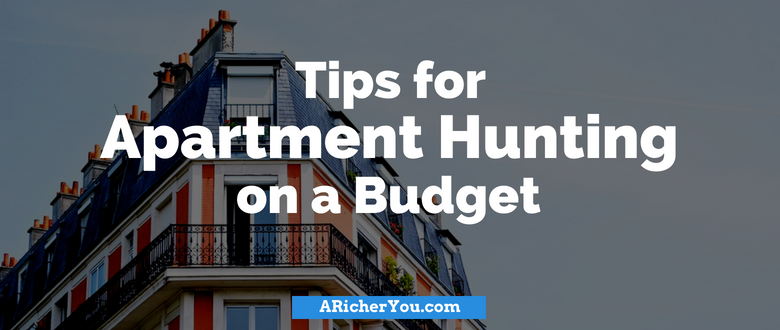Having an apartment budget is a must if you’re thinking of renting. It’s all too easy to fall in love with the perfect place, and rush into signing a lease. Only to find out a couple of months down the track that you’re struggling to stay on top of rent, bills and other overlooked costs…
Here are the main expenses you’ll need to plan for in your apartment budget, before you move in and during your tenancy.
Apartment hunting expenses
Renting an apartment in any major U.S. city isn’t cheap, but if you know how to budget money you can save for the up-front costs before you move in. The following are the four main expenses that you’ll need to set aside money for.

- Advance rent
If there is fierce competition for an apartment, being able to pay rent in advance before you move in can work in your favor. This not only lets the landlord know you can comfortably cover the rent with your savings, it can help you stand out from the competition and secure you the apartment. Aim to add the cost of the first month’s rent to your apartment budget.
- Security deposit
A security deposit is commonly required from prospective tenants when renting an apartment. This usually equates to one or two months rent, and is held by the landlord in case funds are needed to repair damage caused to the property. If there are no issues, at the end of the tenancy you’ll get your deposit returned to you in its entirety.
- Real estate broker’s fee
Looking for a cheap apartment is sometimes easier if you enlist the help of a real estate broker. But be aware that brokers don’t work for free. How much a broker will charge varies, depending on the state – usually it is one month’s rent, but can be 10% of a year’s rent. Always check a broker’s fees before you sign anything.
- Moving costs
In the excitement of finding a great place to live, moving costs are often left out of the budget planner. But these can mount up. If you already have all the furniture you need, the cheapest option is to rent a truck and drive yourself but if you don’t feel confident about that, then hiring professional movers is your next best option. Aim to put at least $500 to $1,000 aside in your apartment budget for a local move.
If you don’t have all the furniture and appliances you need, it might be cheaper to order the basics (e.g a bed, chest of drawers, bedding and kitchen cutlery) and have these delivered on moving day. You can then furnish the rest of the apartment at your leisure over a period of months.

Tenancy expenses
You’ve signed the lease and paid all the associated costs, well done! Now you need to look at creating a budget for the bills you’ll pay during your tenancy. Here are some of the costs you should add to your apartment budget.

- Rent
Rent is by far the largest expense you’ll pay when renting an apartment. But the good news is, this is a fixed cost each month, and one you already know upfront. Rent should always be paid on time in case your landlord or property manager charges late fees for collection.
- Utilities
Some utilities may be included in your monthly rent, in which case you won’t have to worry about those. But in general, you should expect to set up your own account for power, telephone, internet and cable services. You can save money by shopping around to get quotes from different companies, and researching different ways to lower your utility bill. As a general rule of thumb, you want to be spending 4% or less of your gross income on utilities.
- Renters insurance
A worthwhile ongoing cost to add to your apartment budget is renters insurance. This usually doesn’t cost too much, approximately $15 a month, but is highly advisable to cover all your new furniture and appliances if they get stolen. It’s also peace of mind for you, especially if you’ve used most of your savings for moving in costs.
- Emergencies
Now you’ve got a handle on the main costs, you’ll just need to take care of other weekly expenses in your apartment budget, such as food, toiletries and entertainment. It’s a good idea to start saving for an emergency fund too in case anything unexpected crops up.
As you can see, renting an apartment on a budget is entirely possible, all it takes is a little clear thinking and planning to make sure you can afford all the upfront and ongoing costs.
Written by Darlene M.


